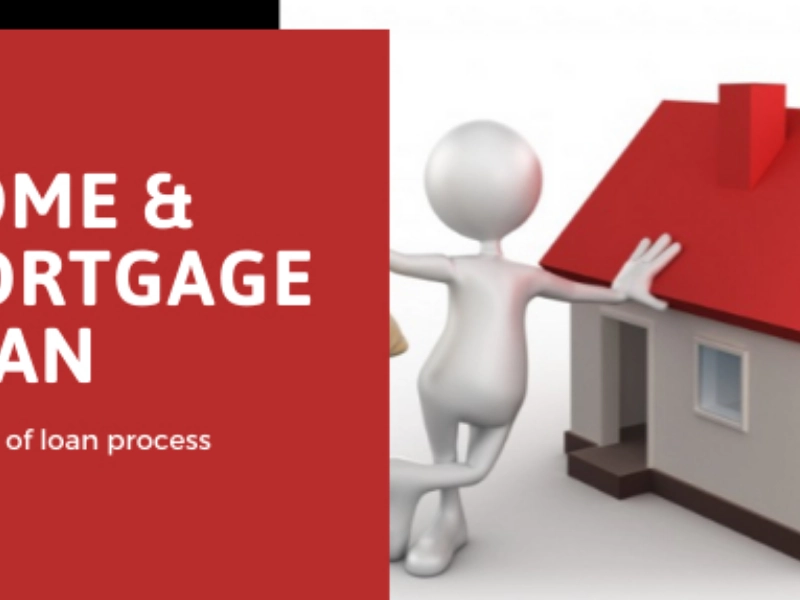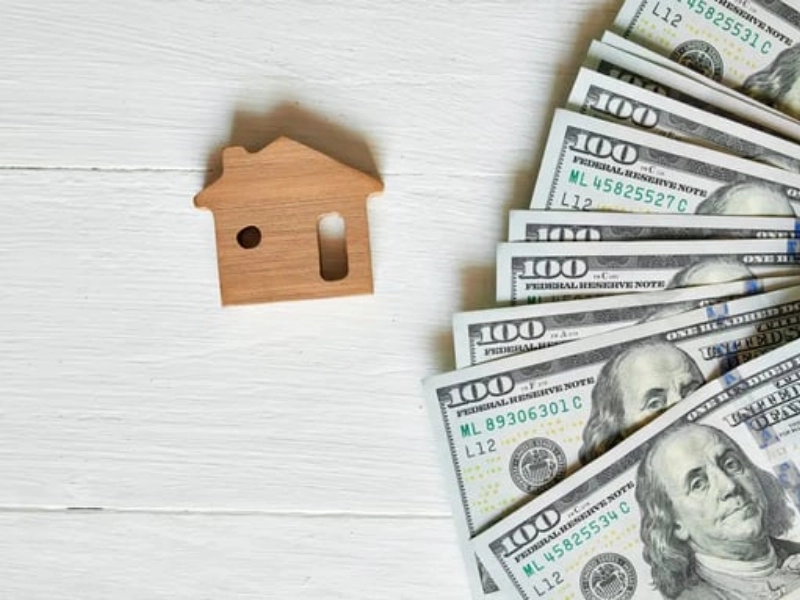Your ally in creating a stable financial future is a home loan.
Since home loans are a type of secured debt, your property serves as security for the lender's lien. Lenders evaluate your assets, income, debts, and credit history before granting a mortgage to make sure you have the financial means to repay the loan. The majority of mortgages mandate that borrowers pay property taxes and obtain homeowners insurance, which are typically handled by lenders via an escrow account.
1. Buying a home is a wonderful investment.

2. Having a home increases your wealth.
 For families, owning a home is a route to wealth building in addition to being an investment. One way to access home equity is through a home equity loan or line of credit, which frequently come with lower interest rates than personal loans. It can be applied toward debt repayment or other financial objectives, such as real estate investment or child tuition payments.
It is a known fact that, on average, homeowners accumulate more wealth than renters. The rise in housing prices and the availability of home equity are major factors in this. Additionally, your monthly mortgage payment acts as a savings mechanism that accumulates equity over time. This is on top of the escrow accounts for homeowner's insurance and property taxes that lenders oversee on behalf of borrowers.
For families, owning a home is a route to wealth building in addition to being an investment. One way to access home equity is through a home equity loan or line of credit, which frequently come with lower interest rates than personal loans. It can be applied toward debt repayment or other financial objectives, such as real estate investment or child tuition payments.
It is a known fact that, on average, homeowners accumulate more wealth than renters. The rise in housing prices and the availability of home equity are major factors in this. Additionally, your monthly mortgage payment acts as a savings mechanism that accumulates equity over time. This is on top of the escrow accounts for homeowner's insurance and property taxes that lenders oversee on behalf of borrowers.
3. Purchasing a house is a major choice.
 One of the most important financial decisions you will ever make is buying a house. Before making this investment, there are a lot of things to think about. Purchasing a property necessitates thorough planning and awareness of your unique financial condition, from obtaining a mortgage to comprehending hidden charges.
Affordability is the most significant rational consideration. Are you able to cover the price of maintenance, insurance, property taxes, and a down payment? If not, renting can be a preferable choice.
When you're prepared financially, it's time to locate the ideal residence. Make a list of the characteristics that are "must-haves" and "nice-to-haves" before you begin looking to help focus your search. Additionally, remember to do your homework on the many types of mortgages that are available, such as FHA loans, conventional loans, and jumbo loans. Being aware of the best kind of loan for you will help you get ready to talk to lenders about your circumstances. It's also critical to realize that becoming a homeowner requires a long-term commitment. If your circumstances change, it can be challenging to sell your house quickly, and selling too soon can end up costing you money.
One of the most important financial decisions you will ever make is buying a house. Before making this investment, there are a lot of things to think about. Purchasing a property necessitates thorough planning and awareness of your unique financial condition, from obtaining a mortgage to comprehending hidden charges.
Affordability is the most significant rational consideration. Are you able to cover the price of maintenance, insurance, property taxes, and a down payment? If not, renting can be a preferable choice.
When you're prepared financially, it's time to locate the ideal residence. Make a list of the characteristics that are "must-haves" and "nice-to-haves" before you begin looking to help focus your search. Additionally, remember to do your homework on the many types of mortgages that are available, such as FHA loans, conventional loans, and jumbo loans. Being aware of the best kind of loan for you will help you get ready to talk to lenders about your circumstances. It's also critical to realize that becoming a homeowner requires a long-term commitment. If your circumstances change, it can be challenging to sell your house quickly, and selling too soon can end up costing you money.
4. Investing in a home is a long-term endeavor.
 Being a homeowner can be a great way to develop your social network and accumulate cash. For individuals who aren't prepared for the commitment, it isn't a wise investment, though.
Because they assume a property will appreciate in value over time, many people consider purchasing one to be a wise investment. There are various reasons why this notion is incorrect.
First of all, property values can decrease for homeowners during a recession due to the cyclical nature of real estate pricing. Significant recurring expenses associated with owning also include real estate taxes, property insurance, and maintenance.
Furthermore, owning a home can restrict one's options for employment and require a sizable upfront financial commitment. Find out more about the various mortgage loan options and whether they're a good fit for you if you're considering buying a property. This will assist you in getting ready for talks with lenders and in choosing the best option for your requirements, both now and in the future. First Ohio's mortgage specialists can assist you in evaluating your options and deciding if you're prepared to become a homeowner.
Being a homeowner can be a great way to develop your social network and accumulate cash. For individuals who aren't prepared for the commitment, it isn't a wise investment, though.
Because they assume a property will appreciate in value over time, many people consider purchasing one to be a wise investment. There are various reasons why this notion is incorrect.
First of all, property values can decrease for homeowners during a recession due to the cyclical nature of real estate pricing. Significant recurring expenses associated with owning also include real estate taxes, property insurance, and maintenance.
Furthermore, owning a home can restrict one's options for employment and require a sizable upfront financial commitment. Find out more about the various mortgage loan options and whether they're a good fit for you if you're considering buying a property. This will assist you in getting ready for talks with lenders and in choosing the best option for your requirements, both now and in the future. First Ohio's mortgage specialists can assist you in evaluating your options and deciding if you're prepared to become a homeowner.









